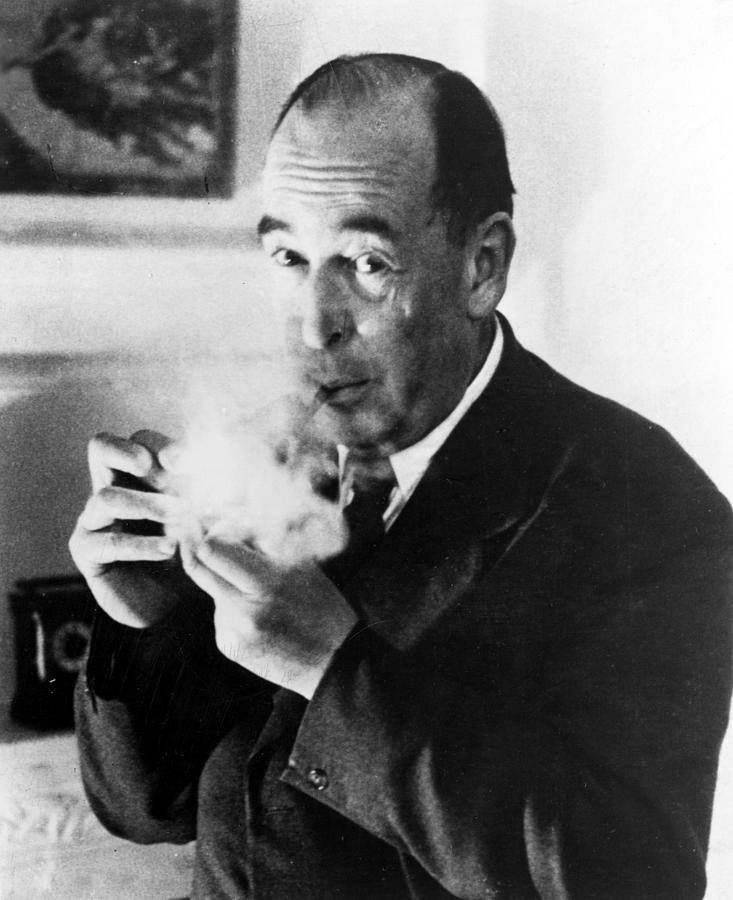CS Lewis, 60 and 125 years later
/Last week I was too busy critiquing Napoleon to note the 60th anniversary of the death of CS Lewis here—one more thing to hold against Napoleon—though I did manage to slip through an Instagram memorial. Fortunately, today is Lewis’s 125th birthday, so in the spirit of commemoration and appreciation here are a few good things I read from others to mark sixty years since his passing.
CS Lewis (1898-1963)
At her Substack Further Up, Bethel McGrew has an excellent reflection on her own lifelong connection to Lewis and the way the endless quoting of his work risks simplifying him into a generator of therapeutic fortune cookie messages:
Lewis is much-quoted, for good reason: He is prolifically quotable. (There are also a few famously misattributed quotes, like “You are a soul, you have a body,” which no doubt would have annoyed him greatly.) And yet, there’s a paradoxical sense in which his quotability almost risks watering down his true value as a thinker. There’s a temptation to see Lewis as a one-stop “Christian answer man,” the super-Christian who always had the perfect eloquent solution to every Christian’s hard problems. To be sure, he came closer than most Christian writers to providing a sense-making framework for hard problems. But even he wouldn’t claim to have “solved” them. Indeed, his very strength as a writer was that his work swung free of top-down systematic theologies which claim to provide comprehensively satisfying theological answers.
She continues with a particularly poignant example from A Grief Observed. I recommend the whole post.
At Miller’s Book Review, another outstanding Substack, Joel Miller considers Lewis’s humor in the years just before his death, when failing health should have robbed him of his joy:
Sayer says that Lewis “never lost his sense of humor.” Indeed, he was famously good natured, even amid dire circumstances. On July 15, 1963, he suffered a heart attack and slipped into a coma. Friends feared the worst; some came and prayed; a priest gave the sacrament of extreme unction. Amazingly, an hour after the sacrament, Lewis awoke, revived, and asked for a cup of tea.
True to form, he found a joke in it. “I was unexpectedly revived from a long coma,” he wrote Sister Penelope, an Anglican nun with whom he frequently corresponded. “Ought one honor Lazarus rather than Stephen as the protomartyr? To be brought back and have all one’s dying to do again was rather hard.”
Miller also reflects on his own experience of reading and rereading Lewis. Like Miller, I came to Narnia late, well after many of Lewis’s other books, and I have also read and reread Lewis’s work many times. As Miller notes, though Lewis did not expect his work to be remembered, it’s a safe bet that readers like him and myself will continue to find and appreciate Lewis’s work.
At World magazine, Samuel D James has a good short essay on Lewis as a prophet:
Precisely because Lewis knew that the claims of Christianity were all-encompassing, he recognized that no civilization that abandoned it could function. This was not because Lewis desired some kind of baptized Anglo-Saxon ethnonationalist state (born in Belfast, Lewis never forgot the high cost of religious intolerance), but because modern man’s alternatives were quite literally inhumane. Lewis saw from afar, with striking prescience, that humans had no choice but to retreat from personhood if they wanted to escape the implications of Christian revelation.
At The Critic, Rhys Laverty elaborates more deeply on the same theme:
At the close of the Second World War, Lewis was one of a number of Christian intellectuals (alongside Jacques Maritain, Simone Weil, W.H. Auden, and T.S. Eliot) who had begun to consider what world the Allied powers would now make for themselves. Lewis saw a future in which the rejection of transcendent values would allow a technologised elite to re-make nature as they saw fit, ultimately overthrowing human nature itself — a process made possible through the ideological capture of education.
Laverty invokes not only The Abolition of Man, as James does, but Lewis’s dramatization of those ideas in the final novel of The Space Trilogy, That Hideous Strength, in which the elite of the National Institute of Coordinated Experiments (NICE) pursue genuinely diabolical technological progress and control:
With N.I.C.E, Lewis anticipated our contemporary technocracy. “Progress” is our unquestionable sacred cow, and its faithful handmaiden is technology. Whether we are tearing up areas of ancient natural beauty in order to build infrastructure supposedly intended to help protect the environment, prescribing new cross-sex hormones and surgery to enable greater self-realisation, or developing artificial wombs which we unconvincingly insist will only ever be used for the care of premature infants, there is now no technological innovation that we will deny ourselves today if it supposedly contributes to the nebulous “future good of humanity”.
It is only Green Book education which makes N.I.C.E possible. If truth, goodness, beauty, and so on are merely relative then there is nothing to rein in man’s “conquest of nature”. His scruples are mere hang-ups to be educated out. He will be driven by pure reason or pure appetite, with no sentiment to regulate their respective metrics of efficiency or pleasure.
I commend all four of these essays to y’all. They’re good celebrations of a worthy life and a worthy mind, and have gotten me wanting to reread pretty much all of my Lewis shelf. Which might take a while.
Let me conclude with a brief personal reflection of my own. Growing up in the environment I did, I don’t remember ever not knowing about Lewis. He was a byword for intelligent Christian thought, something that stood out to me among the generally anti-intellectual atmosphere of fundamentalism. My earliest accidental exposure was probably the BBC Narnia films. I recall catching a long stretch of The Silver Chair on PBS at my grandparents’ house one morning. As dated as those adaptations are now, it scared me. But it also riveted me, and stayed with me. Indeed, The Silver Chair may still be my favorite of the Narnia books.
But it was a long time before I actually read anything by CS Lewis. My parents got me a set of his non-fiction books at our church bookstore when I was in high school. I started The Great Divorce one night and something about the Grey Town and the bus ride into the unknown disturbed me so much that I put it away. That nightmare quality again. But when I tried the book one sleepy Sunday afternoon in college—my way prepared by Dante, whom I discovered my senior year of high school—I read the entire thing in one sitting. It’s still among my favorite Lewis books.
From there it was on to The Screwtape Letters and Mere Christianity and The Four Loves. I read The Lion, the Witch, and the Wardrobe and liked it but returned to the non-fiction, devouring Lewis’s essays on any topic. After college I read The Space Trilogy—all three in one week, if I remember correctly—and delved into his scholarly work: An Experiment in Criticism and, crucially, The Discarded Image. I also read as much about Lewis as I read by him, and dug into the works that Lewis loved only to discover new loves of my own, most notably GK Chesterton.
Only with the birth of my children did I seriously return to Narnia, and now I genuinely love them. My kids do, too. They’ll be yet another generation entertained and blessed by Lewis’s work.
He is one of the few authors who has grown with me for so long—guiding me, enlightening me, introducing me to great literature, telling me entertaining and meaningful stories of his own, and deepening both my understanding and my faith. Where the fictional Lewis of The Great Divorce meets George MacDonald as his heavenly guide, the Virgil to his Dante, Lewis could well play that role for me.
On this, his 125th birthday, just over a week from the 60th anniversary of his death, I am more grateful than ever for CS Lewis. RIP.






